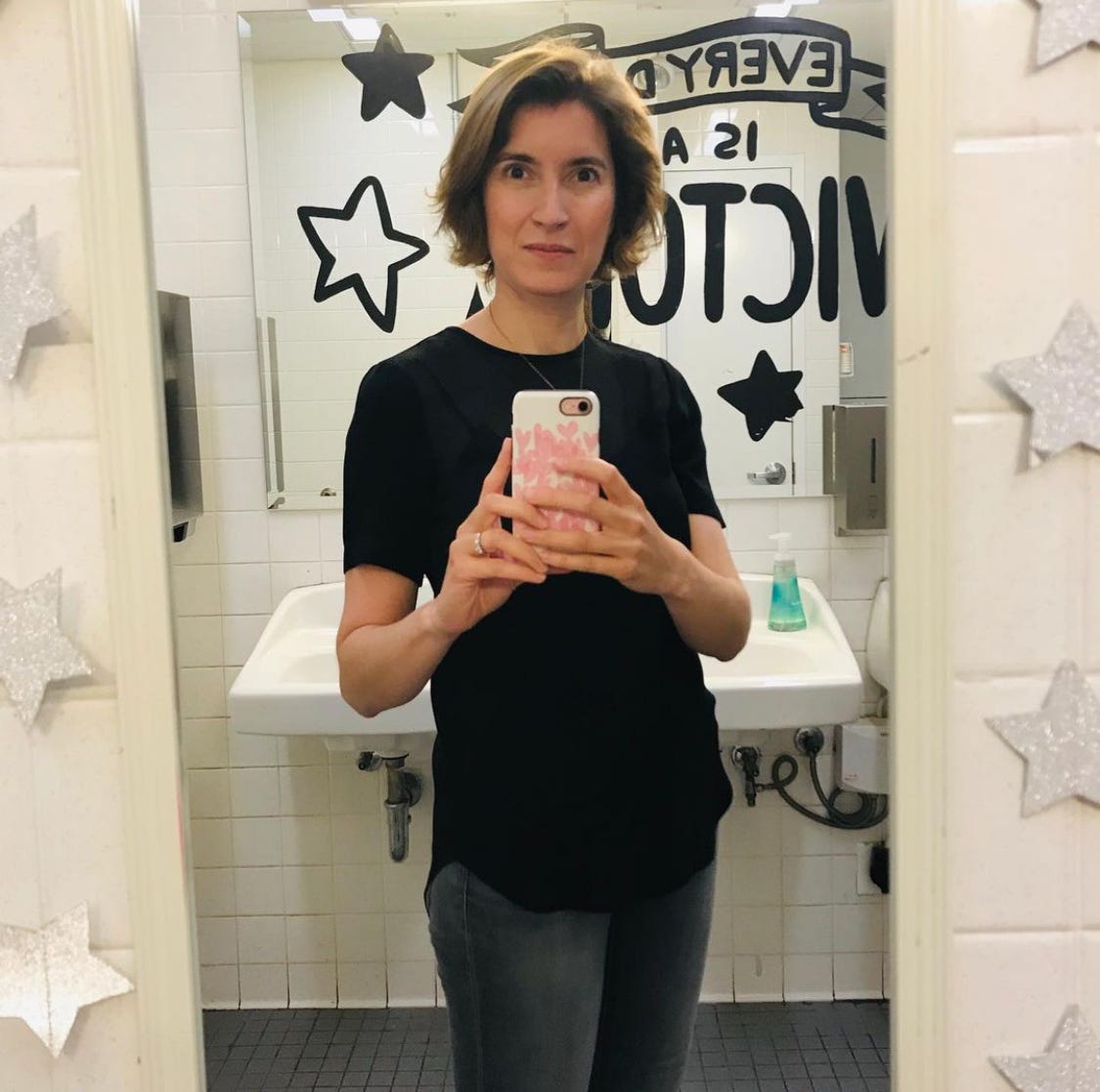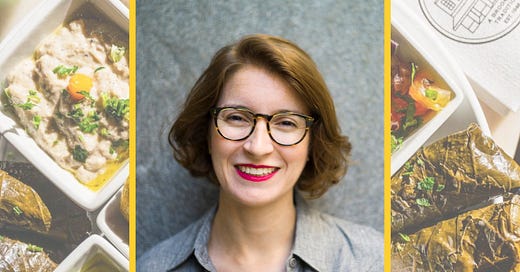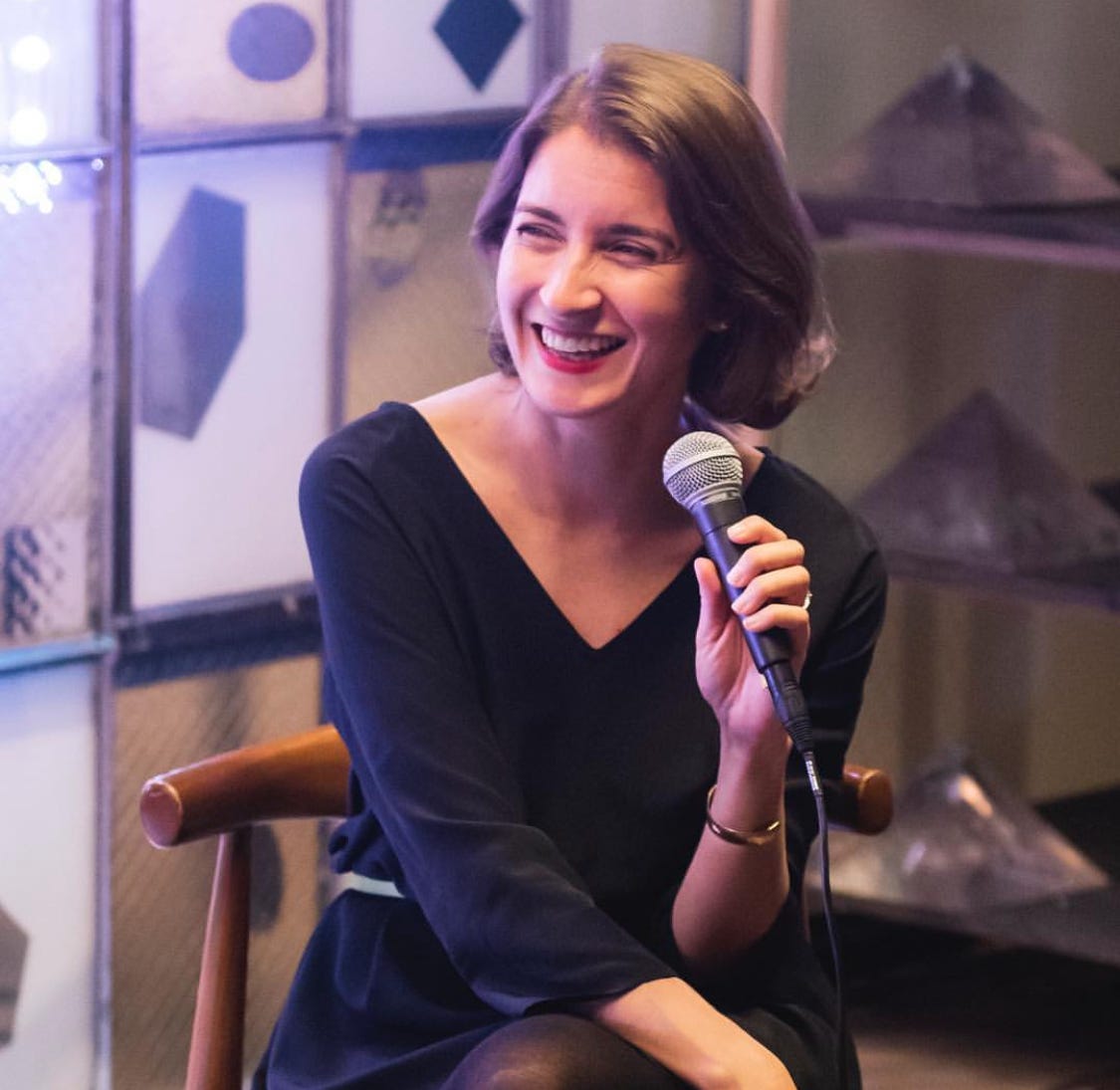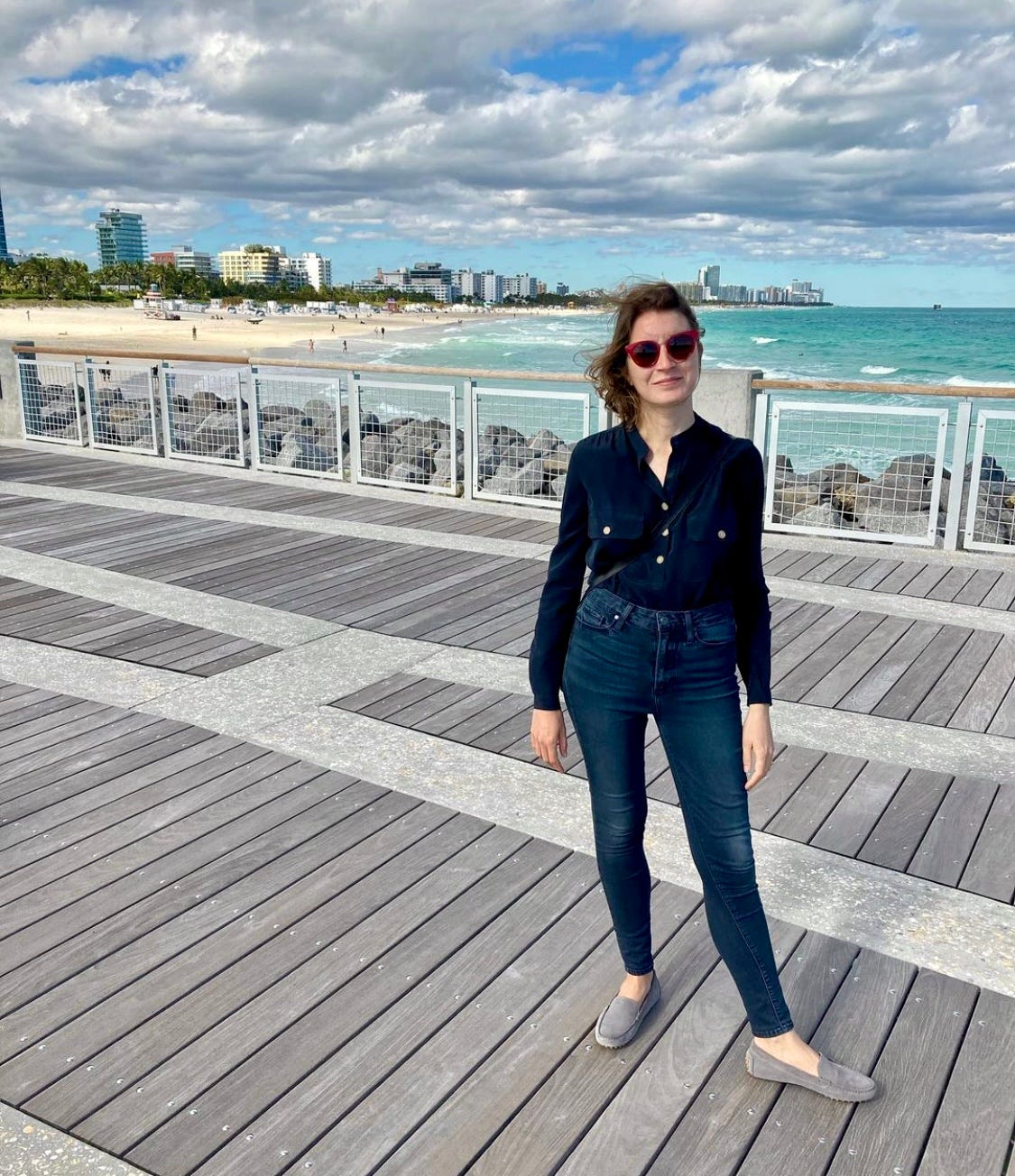Lindsey Stanberry Tells Us Her Big Piece of Money Advice
The Purse founder also reveals the Park Slope breakfast salad she's obsessed with and where she got one of the best massages of her life (Hint: It's on 7th Ave!)
Thanks so much for reading Park Slope Times! I’m Kelley MacDonald, and I interview neighbors about their lives and favorite things to see, eat, and do in and around Park Slope. If you'd like to read these interviews, please upgrade to paid. If you stick with a free subscription, you’ll get occasional free emails. Thank you so much for being here!
Hello! How are you? We had a busy week, so I’m looking forward to a chill weekend. To celebrate Father’s Day, we’re planning to go to the Seventh Ave Street Festival and then grill. If you’re looking for things to do or gift ideas, check out the PST Father’s Day Gift Guide. And please share any fun ideas or plans you have in the comments!
Today, I’m excited to feature Lindsey Stanberry, the brilliant writer and editor, who founded The Purse, a newsletter about women and money. I met Lindsey earlier this year, and it took all of two seconds to figure out that we live close to each other and both write newsletters. Lindsey started The Purse last year, after leaving her role as an executive editor at Fortune. “I love writing again. The time I get to spend on The Purse — writing about women and money and topics that I care about so deeply — it's wonderful,” says Lindsey.
In her interview, Lindsey shares how she landed in NYC, why she started writing about women and money in the first place, and her dream for The Purse. She also tells us where to find delicious taramasalata and baba ghanoush — plus a great arcade!
Hi Lindsey! How did you make the move from Cincinnati, where you grew up, to New York City?
I got into NYU, but it seemed too scary. And since I knew I wanted to move to New York eventually, I decided I should take a detour. I went to Boston [University]. Didn't love it. But I met my husband there, so that was a positive. After I graduated, I lived with my parents for a little while in Galveston, Texas. Then I was like, Mom I have to move to New York without a job [laughs]! My parents have always been really supportive, and they helped me move here and helped me pay the rent for a while as I looked for a job. I lived in the teeniest tiniest bedroom on the Lower East Side with two girls who had graduated from NYU.
What kind of job did you find?
I worked at a temp agency. It was like old school days. I would call in the night before to see if they had a job for me, and if they didn't, I would go and sit in an office. I would pray to God that they didn't have a job for me, and they paid, I think, $15 an hour to sit in the office for three hours. They sent me to all these random jobs. I worked the front desk at Sirius Satellite Radio; I did some temping for Conde Nast; I worked in the fashion closet as a temp at GQ.
A couple days a week, I interned at Harper's Bazaar for free because nobody paid for internships back then. I would make photocopies. The big thing then was to make this book of the different newspaper gossip columns and fashion sections from Women’s Wear Daily, The Post, The Times. I’d photocopy, and then hand them out. I was dealing with a lot of jammed printers. It was horrible [laughs]! Then I got a job at a book publishing company and ended up staying there for seven years and kind of growing up there.
How did you make the switch from book publishing to digital media?
I went from [the book publishing company] to Martha Stewart, which was a wild experience. There were so many smart, talented young people in one place. I learned so much. The levels of perfection that they go to heighten your sense of detail, but it wasn't fun and it was a little boring. And then I got laid off. I always joke that if I had been in charge of the P&L sheet, I would have laid me off too [laughs].
After I got laid off, I didn’t want to work in book publishing anymore. I started talking to people, and I met this guy at an event about the future of books. He ran this little website called Figment, which was a social media site for teenagers, and I somehow convinced him to hire me, even though I had no digital experience at all. We worked in the basement of an art gallery on the Upper East Side, across the street from Martin Scorsese’s house. I never saw him the whole time I worked there.
[Figment] ran out of money; it was really sad. It was sold to Random House, and for some reason, on my last day in the office, I had to run down to SOHO. So I'm walking down the street in SOHO, and there's Martin Scorsese getting out of a car [laughs]. I was like, How does the universe work in these weird ways? I worked across from his house for 18 months! But when Figment was sold, Random House offered to hire me, but I was trying to leave book publishing. So I ended up landing at Refinery29 kind of by accident because my boss [the owner of Figment], knew somebody there, and they were looking for a copy editor. I am the world's worst copy editor. I thought it was going to be a freelance job until I could find something that I really wanted to do. I stayed for five and a half years.

You’re the founding editor of Refinery29’s Money Diaries, the breakout series that explores women’s personal finance. I’ve been reading it for years! How did you come up with the idea for this series?
Refinery started out as a fashion and beauty site, but when I joined they were beginning to get more into the career and personal finance space. I had no personal finance experience, but my husband and I had saved a lot of money to buy our first apartment. And I didn't like the narrative around women and money and millennials and money, and the idea that we’re all bad with it, that we’re dumb. So, I was inspired to start writing about that.
The nice thing about Refinery was that we were so small and pretty scrappy, and as long as you got your regular work done, there was always room on the site to publish stories. So, I started writing on weekends. Seeing the success of some of my early stories, I convinced them that we should expand the work and money section. I became the first editor of that section.
We were always trying to figure out the different kinds of stories that would draw in a lot of readers because this was the height of digital media and growth and getting a million views was top of mind. I had a colleague whose job was purely to find viral content, and she was very good at it. She came to us and asked if we could do a money diary. I thought it might be boring, but we’d seen that a dollar sign in headlines was really popular, so we tried it. She came back with our first one and the woman was on a date and she did cocaine with her date. She said something like, “I don't know how much the coke cost because the date paid for it.” We thought that was…
Keep reading with a 7-day free trial
Subscribe to Park Slope Times to keep reading this post and get 7 days of free access to the full post archives.







